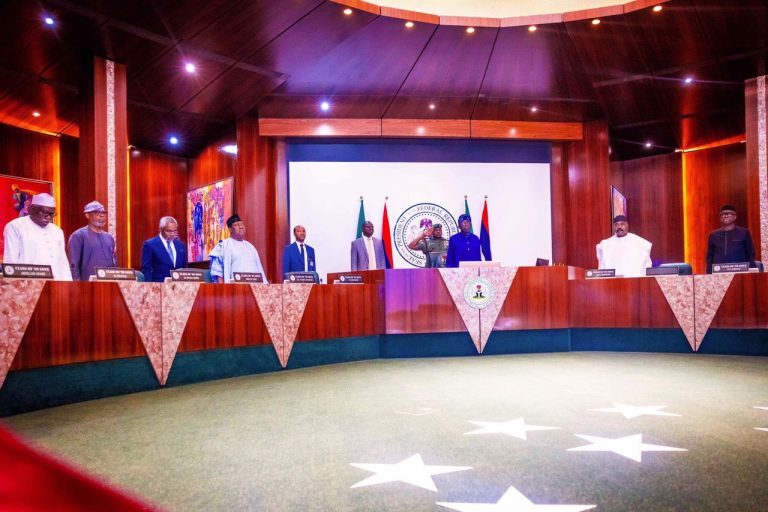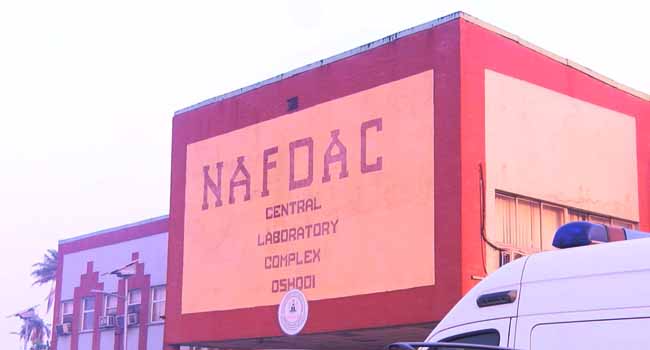The Federal Executive Council has approved a loan of about $618m from a group of financiers for the procurement of six fighter aircraft and ammunition for the Nigerian Air Force.
This was disclosed by the Minister of Information and National Orientation, Mohammed Idris, in Abuja, on Wednesday, following the conclusion of the FEC meeting presided over by President Bola Tinubu, reports Voice of Nigeria.
Also on Wednesday, the FEC approved N740bn for the Berger stretch of the Abuja-Kano route, among other high-profile road projects.
Idris, who stood in for the Minister of Finance and Coordinating Minister of the Economy, Wale Edun, said, “From the Honorable Minister of Finance, who is away on official duty in the United States, I’m going to let you know what those FEC approvals are.
“The first one is that there have been approvals for some contracts, about seven of them for the Nigerian Customs Service.
“The next one is that there’s an approval for an agreement for the elimination of double taxation with respect to taxes on income and prevention of tax evasion and avoidance between the Federal Republic of Nigeria and the Hong Kong Special Administrative Region of the People’s Republic of China.
“The third one is an approval to obtain a credit facility of 443,330,781.49 euros and another $141m from a group of financiers for the procurement of six units of M346 fighter aircraft and ammunition for the Nigerian Air Force.
“And the last one from the Federal Ministry of Finance is the approval for signing of an agreement for the elimination of double taxation with respect to taxes on income and the prevention of tax evasion and avoidance between the Federal Republic of Nigeria and the Republic of Botswana.”
Earlier in October, the Air Force said it was acquiring 24 M-346 combat jets and 10 AW109 Trekker helicopters as part of a fleet renewal strategy.
The first three M-346 jets are expected to be delivered by early 2025, with subsequent deliveries running until mid-2026.
At the press briefing, it was also revealed that the FEC had approved the establishment of the Creative Economy Fund to ensure the deepening of the sector.
Minister of Arts, Culture, Tourism and Creative Economy, Hannatu Musawa, told State House correspondents that the council approved the establishment of the fund.
“FEC gave approval for the creation of a Creative Economy Development Fund.
“This is a special purpose vehicle that will allow members within the creative economy to have access to funding and use their IP as collateral in terms of monetisation.
“We identified very early on that the very basic structures in order for us to really tap into the potential of the creative economy were missing.
“So, we got to work in putting up those structures. IP policy is one of those very basic structures that was missing. We are working together with the Ministry of Industry, Trade and Investment and with the Ministry of Justice to ensure that we deliver IP policy, hopefully within the maximum, at the very last phase, within the next two weeks.
“This is a special purpose vehicle that will give them funding that will be able to allow us to leverage funding that we’re getting. We already have a commitment, for example, from Afreximbank that has committed to giving us $200m and a number of other sources.
“So, this is a special purpose vehicle that will allow us to give this funding to members within the community. And hopefully, we’ll be able to tap into the potential and reach our targets of economic expansion, creative expansion, cultural expansion and of course job creation, specifically for a younger demographic,” the minister added.
N740bn for Abuja – Kano road
The Minister of Works, Dave Umahi, clarified the government’s approach to managing the extensive backlog of infrastructure projects.
He announced that the Shagamu-Benin road was undergoing major rehabilitation, while procurement processes were being finalised for its full reconstruction using reinforced concrete pavement.
Also, the Abuja-Kano road, previously slated for a tax credit arrangement, will now be procured without such a provision, with the 162-kilometre Berger section already approved for N740bn.
Umahi highlighted several other projects, including the commencement of construction on the Sokoto-Badagry road, with the Sokoto section to be flagged off imminently.
Furthermore, he said works would resume on the Oyo-Ogbomoso road, a project which has been at a standstill for 18 years.
He also said the Makurdi-Katsina-Ala road would undergo significant repairs.
Umahi said FEC also addressed the inherited debt profile of N1.6tn tied to 2,604 projects, with a total contract value of N13tn.
He said the Ministry of Works had initiated a phased approach to project completion based on available funding, to manage the backlog.
Biu-Kangiwa-Kamba-Kaya Niger Republic road in Kebbi State, the Yola-Hong-Mubi road in Adamawa State and the Kachako-Dambazua road in Kano State.
The council further approved advanced payment mechanisms to address inflation and rising costs driven by fluctuating exchange rates and petroleum prices.
Umahi explained, “And finally, we presented a memo to FEC that where there is proof of funds, there are available funds, the Procurement Act allows MDAs to pay a maximum of 30 per cent advance payments.
“Let me emphasise that this advanced payment, when you read the law, it says ‘may pay.’ And so when people are giving contracts and they don’t mobilise, and they said, I’ve not paid mobilisation, it is not legally binding, because the word says may pay. And so some people turn it shall pay. So no, it may pay.
“So where we have funds, and they will have a valuable fund beyond this 30 per cent so what we are, you know, we requested from FEC is approved, that we first pay 30 per cent which is the Procurement Act, and not more, and then when the contractor has started work, and to the satisfaction of the Ministry of Works, we should be allowed to pay additional funds.”
He continued, “Yes, the law allows us to pay in terms of materials on site. But we are asking beyond that, what is the essence of this?
“It is to mitigate a lot of fluctuation and inflation because we have a lot of indices that affect the ministry of works like the petroleum affects it.
“The dollar exchange rate also affects so we are doing everything to manage the resources within the available funds so that we mitigate inflation.”
For his part, the Minister of State for Petroleum Resources (Gas), Ekperikpe Ekpo, told journalists that the President was resolute to see to conversion of most fuel stations nationwide to CNG dispensing stations, where citizens could also get conversion kits.
Ekpo said Nigeria has turned to the use of the alternative fuel because it is cheaper and safer and the Federal Government is working to make it available to all parts of the country.
He explained, “Today at the Federal Executive Council, the President has given a charge, through the Minister of Information, on CNG.
“We are well aware that the President set up a Presidential Committee on the CNG to drive the CNG project, as a minister who has been supervising what has been going on there, and it is left for us to inform the general public that CNG has come to stay, and we have to follow that route because CNG is safe, cheaper, and protect the environment.
“So today, the President has talked about ensuring that most of the filling stations across the country are converted into CNG stations, where you have the conversion kits so that people can convert their vehicle to CNG.”
On the price differential, the minister said, “It is important to note that when you are using CNG, you save a lot of money, a litre of fuel that can go for N1,000, with CNG, you get it at N200, which saves you N800 and, I believe, with the passion of Mr President, the push that he has given to us we’ll try as much as possible to drive the CNG programme to reach all the nooks and crannies of this country so that we will take advantage of the natural resources, gas, that God has endowed us.”
The council also approved the printing of one million science textbooks for distribution to all public secondary schools nationwide.
This followed a memo tabled by Lokpobiri, on behalf of the Petroleum Technology Development Fund.
Lokpobiri said the programme targets areas of deficiencies in critical subjects such as physics, chemistry, biology, mathematics and computer science.
He explained that the initiative seeks to bridge the gap to enable Nigeria to match up with the rest of the world in engineering and tech development.
The textbooks will be distributed to 774 local government areas, 104 unity schools, and 122 special schools.
Additionally, the PTDF plans to build digital and physical libraries in about 1,000 secondary schools, across the country.
The minister explained, “We brought a memo on behalf of the PTDF that had initiated a program called the PTDF stem fund.
Lokpobiri added, “This programme is meant to print one million science textbooks that will be distributed to all the local government, 74 local government areas in the country, and also to support the 104 unity schools that we have in the country, and then 122 special schools that we have in the country.
“This memo was approved by the council. Essentially, this is a support at the secondary school level. To catch up with the rest of the world in terms of technological and engineering development, we need to lay a very solid foundation.
“Some time ago, we found that we are lagging behind, and so we decided that look, we are going to build both physical and digital libraries.”
He said the council also authorised the PTDF to “build digital and physical libraries in about 1000 secondary schools in the country.”
He said, “This is to compliment that effort of the PTDF that has a mandate that will boost capacity in Nigeria.”







